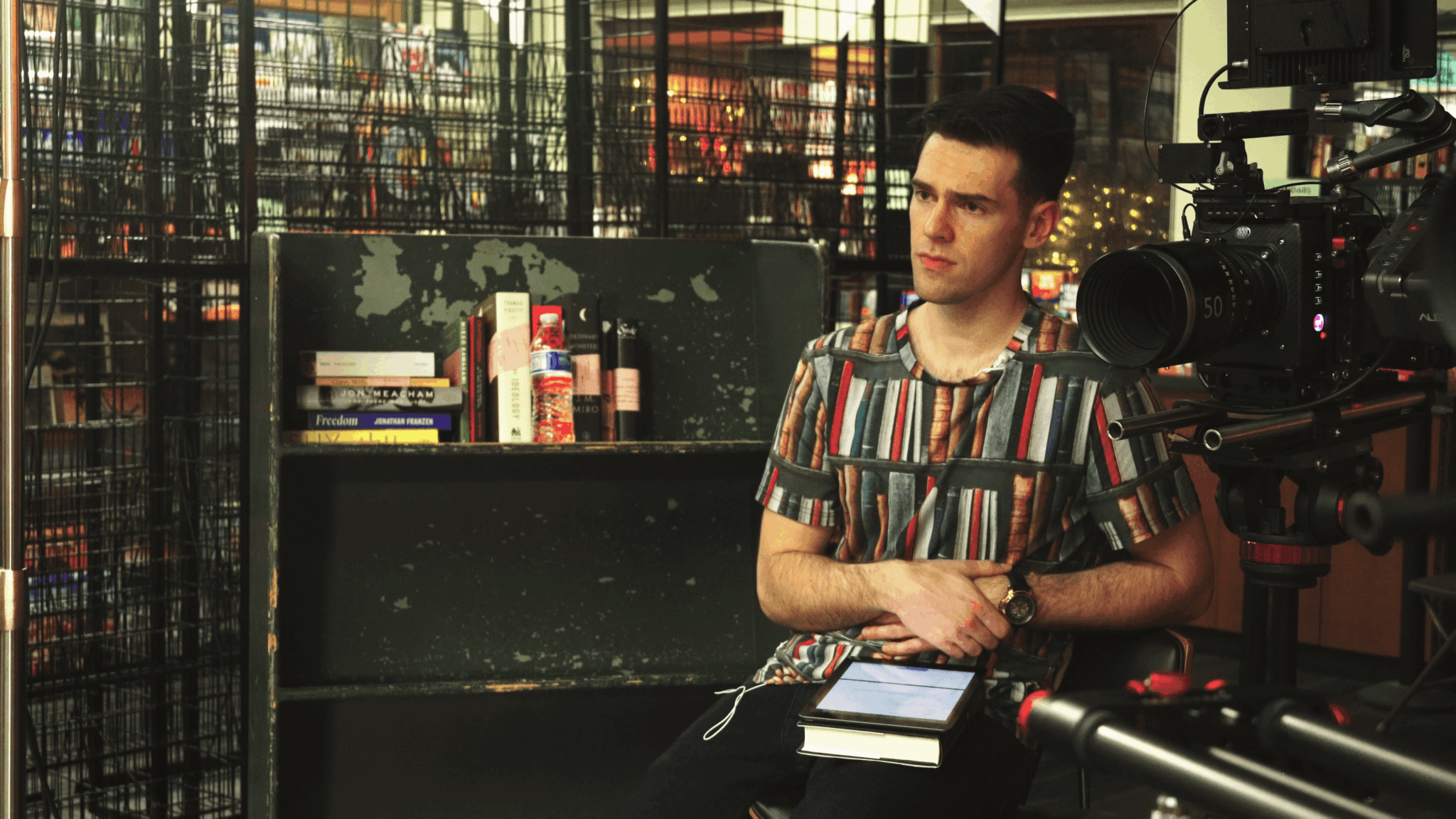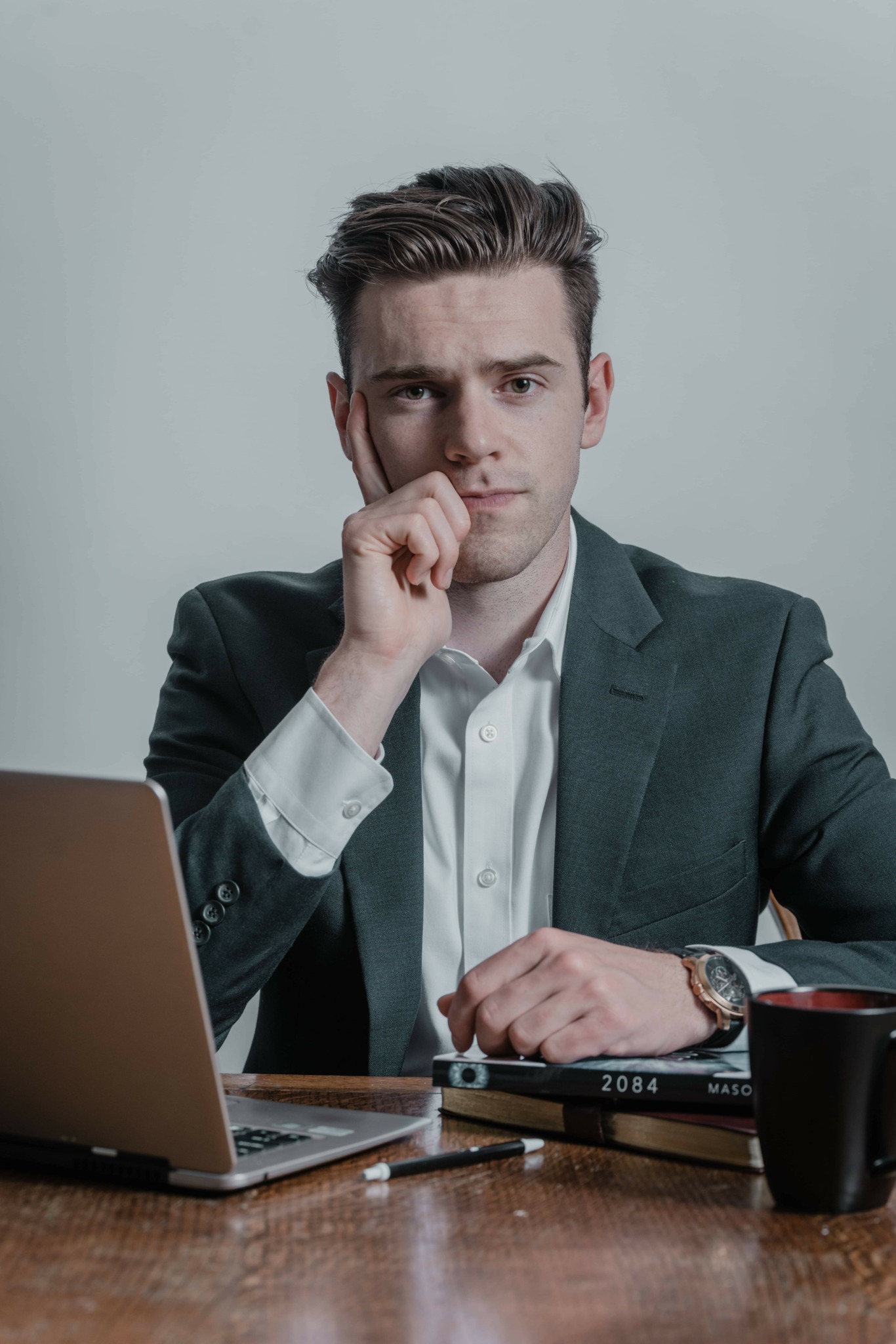We’re excited to introduce you to the always interesting and insightful Mason Engel. We hope you’ll enjoy our conversation with Mason below.
Alright, Mason thanks for taking the time to share your stories and insights with us today. We’d love to hear the backstory behind a risk you’ve taken – whether big or small, walk us through what it was like and how it ultimately turned out.
I’ve been writing science fiction and fantasy since I was a senior in high school, and through promoting a self-published novel that I released when I was in college, I stumbled into making documentaries. I made a documentary about a book tour that I took and turned that into a film about independent bookstores, and I landed in this weird niche of making documentaries about books.
Years later, I had a job in L.A. as a receptionist for Discovery (right before the Warner Brothers merger), and I saw the writing on the wall and knew that our office was about to close. Thankfully, it seemed like I was going to be able to pivot my current position into a new job. An assistant for an executive. I would just have this gap of about two months of unemployment when my original job as receptionist would end and my new potential job as an assistant would begin. I also had this idea for a documentary, this crazy literary road trip. I would travel to 50 states, read 50 books, and interview 50 authors … all in 50 days. I couldn’t really take two months off of a brand new job to go and do this, and I didn’t want to wait a year or two years until the new gig was over. Lucky for me, I had a two-month unemployment gap to fill.
But there was a hitch. It was October 15th of 2022, and my unemployment was set to begin on January 15th of 2023. At this point, I hadn’t sent so much as an email about this new project. I hadn’t created a Google doc. I was truly at ground zero, and I had three months before day 1. So starting in mid-October, during one of the busiest periods at Discovery because of the merger—we’re clearing offices, I’m working 50 to 60 hour weeks, not behind the desk, but actually moving boxes and doing physical things so I couldn’t sneak and work on my own stuff—during those three months, I threw together a teaser for the idea, started reaching out to a bunch of bestselling authors to land interviews, found a crew that I met on Facebook, rented a minivan from Hertz, and, generally just burned the candle at both ends to see if the trip would even be possible.
A couple of months into all this, James Patterson, one of the biggest names in publishing, said yes to an interview. That was the moment when I realized, dang, I actually have to go through with this. So I doubled down, and by the time January rolled around, I was running on empty. That’s when I got the news that the executive I was planning to be an assistant for had been laid off. I had already invested all this time and money into this road trip … only to realize that when I got back from the trip, my savings account would be completely empty and I would have no job to come back to.
It was a risk to hit the road anyway. I’m in post-production on the film now, still waiting to see if the risk will pay off.
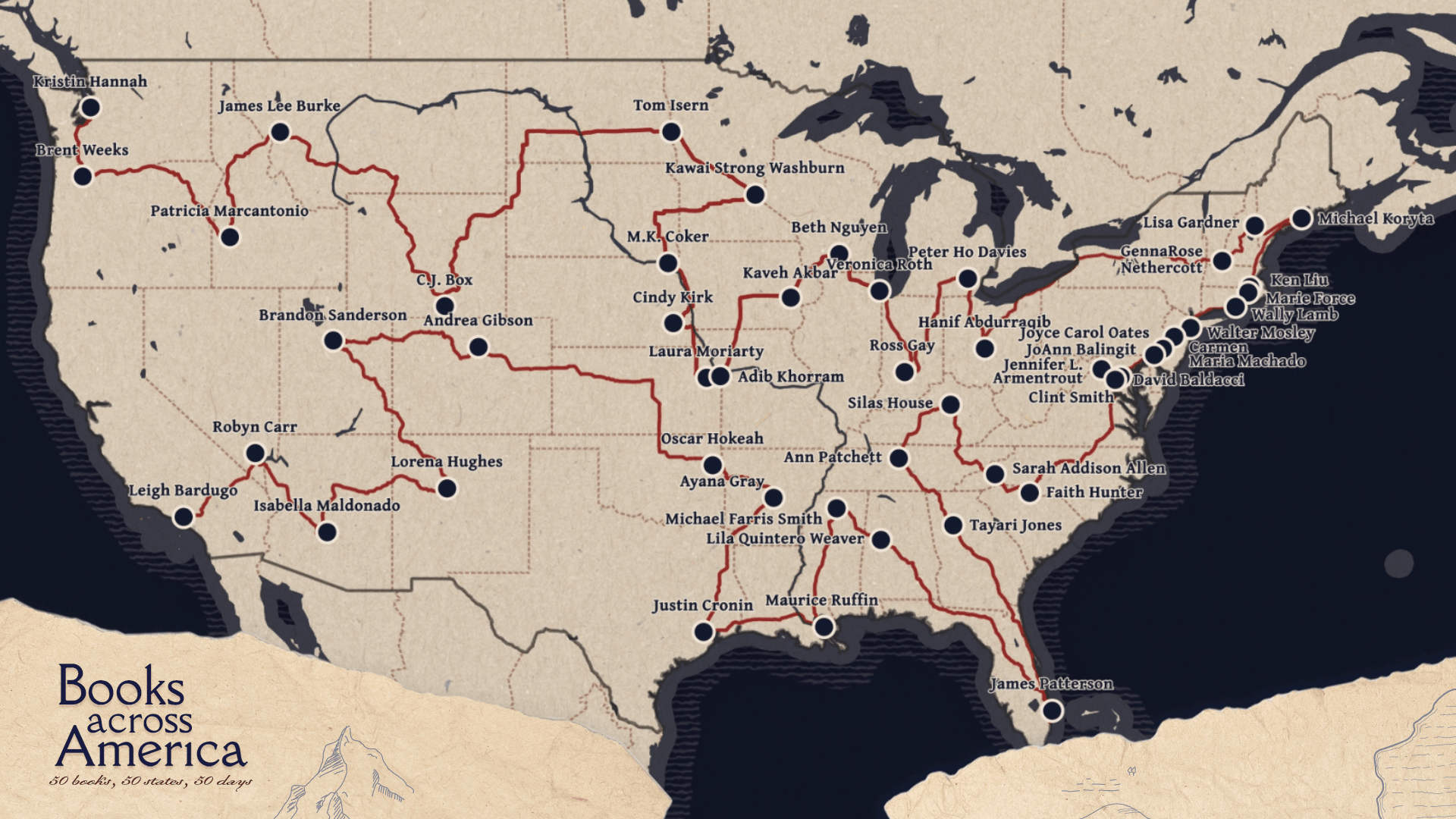
Great, appreciate you sharing that with us. Before we ask you to share more of your insights, can you take a moment to introduce yourself and how you got to where you are today to our readers.
My name is Mason Engel. I’m an author of science fiction and fantasy and a maker of documentary and narrative films. I grew up loving stories and particularly loving books. I was always a big reader and became a writer my senior year of high school. I wrote my first book in secrets the second half of senior year, and got a family friend to print and bind the book. I then used the dedication of that custom copy to ask my girlfriend at the time to prom.
So that was my motivation for finishing the first book, and by the time I finished, writing had become a habit. I continued writing through college, finishing my sixth novel as a senior at Purdue University in Indiana. I self-published that novel and it did pretty well online, but I wanted to take it further. I wanted to become traditionally published, like by a Random House or Harpercollins or Simon & Schuster or whatever. And my kind of long shot idea for making that dream come true was to go on a book tour. I would give away a copy of my book to 50 different independent bookstores in 50 days, document the journey on Instagram and Snapchat, and try to go viral.
So I hit the road and I videoed everything religiously, and I got back with no book deal, no extra followers, and no real progress to show for my writing career. But I did have all of this footage, and it gave me an idea for a documentary. I had fallen in love with indie bookstores on the road. If no one wanted to hear *my* story, maybe they’d be interested in the stories of booksellers.
I decided to take a second road trip, this time with a camera guy, and interview booksellers about why it’s important to shop local as opposed to on Amazon. The resultant minidoc, The Bookstour, landed on public television.
By this time, I had moved out to Los Angeles, so I guess I’d caught the filmmaking bug. I made a second film, Story Road, about how different writers became successful. Talking to people like Andy Weir, who wrote The Martian, Christopher Paolini, who wrote the Eragon books, and some other big names in publishing.
Anyway, after these two short documentaries, I had stumbled into this weird niche of making documentaries about books and the book world, and I started trying to brand myself as the Anthony Bourdain of the book world, traveling and telling the stories of the people who write, sell, or otherwise love books.
Now I’m working on my newest documentary called Books Across America and a new novel called The Book Tour, which is a magical realism road epic based on my literary travels.
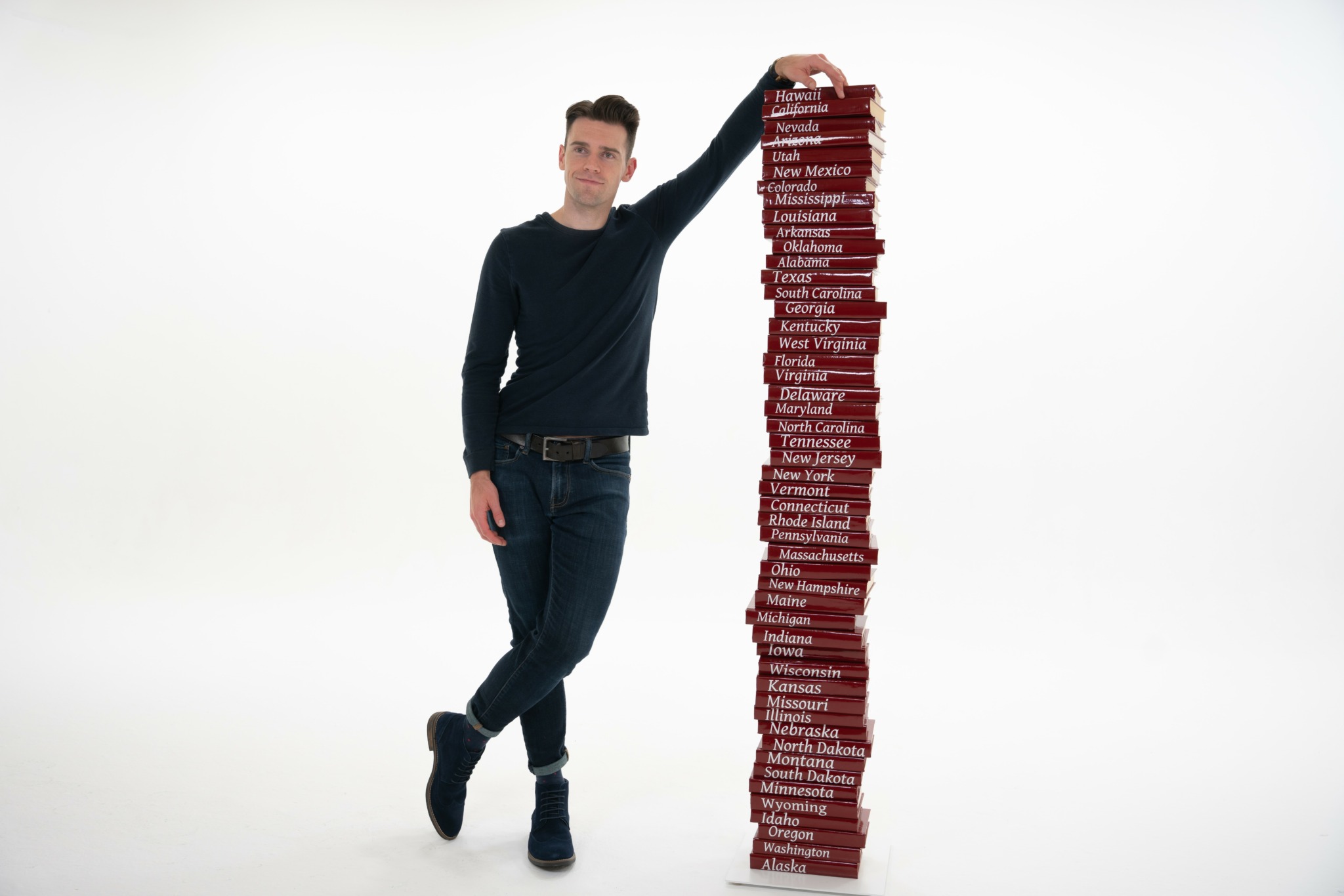
Learning and unlearning are both critical parts of growth – can you share a story of a time when you had to unlearn a lesson?
A lesson I had to unlearn was actually a strength of mine that I had to kind of temper. It was something that could serve me at times and other times could get out of hand. That strength is scheduling and long-term vision casting. Without that sort of vision, it’s hard to know why you’re doing what you’re doing on a daily basis. It’s hard to pull off big projects. You need a big vision in order to do big things. Then again, I’ve begun to wonder if that’s actually true. At least in the context of scheduling and exact timing.
Say I’m planning this big project or I have a big goal. I want to be a New York Times bestselling author. One approach is to reverse engineer that goal and figure out the things that I need to do in order to get there. You start scheduling those intermediary milestones and going through your schedule and knocking off those tasks, and that’s a valuable thing. But, early on in my career, I was very attached to my schedule, to the timing behind those tasks, and I would lay out in painstaking detail when I needed to do what. That’s certainly helpful in some environments and in some timeframes. But the further you schedule into the future, the less valuable your schedule becomes. It took my work on my first documentary, the mini doc about independent bookstores, to learn/unlearn this lesson. I was planning the documentary in late 2019, early 2020. And then came the pandemic. The entire timeline I had laid out for the film completely exploded. Like the rest of the world, I had to pivot and postpone and figure out how to do what I was trying to do, and ever since then, I’ve been cautious about extended timelines. Now, contrary to my future-obsessed tendencies, I schedule only a few weeks in advance, maybe a few months in advance, with actual timelines. My longer term visions and far off goals are tied not to dates but to directions. As long as I’m moving in the *direction* of my goals, I have confidence I’ll get there. Finding the balance of planning and relinquishing control of what I can’t plan has been difficult but ultimately productive.
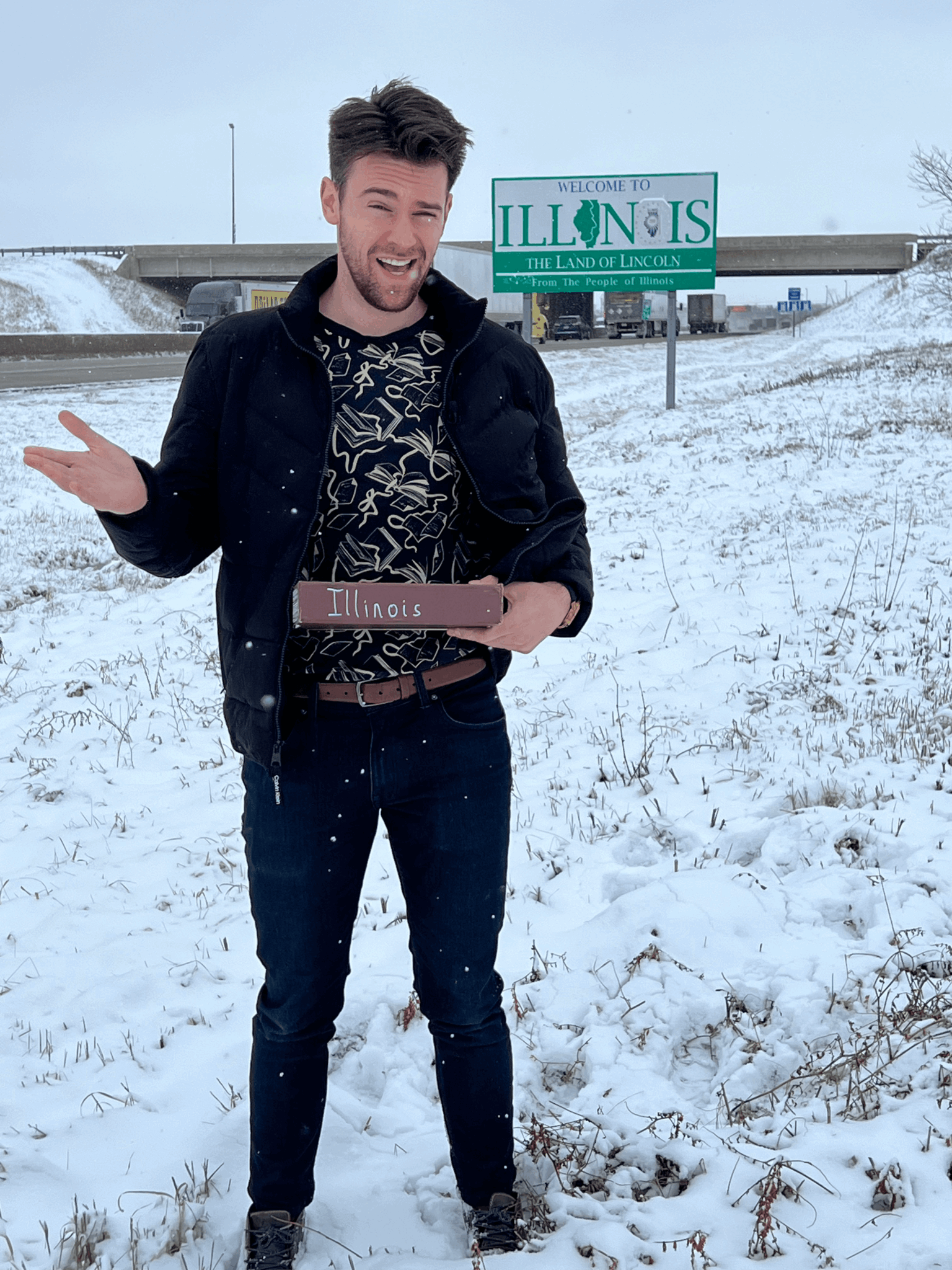
Let’s talk about resilience next – do you have a story you can share with us?
I think the most resilience I’ve shown, both as a creative and as a person in general, was during the Books across America road trip. I mentioned the lead up to the trip, that three month sprint to get the project off the ground. Then, after that sprint, when I’d been working 80, 90, 100 hour weeks, sleeping five hours a night, overcaffeinated … the whole nine, I had a Herculean task ahead: the 50 day road trip. And this was a very low-budget and fast-moving operation. So, it was very strenuous. We would drive anywhere from 3 to 10 hours a day. I would read between 300 and 1,000 pages per day. Also stopping at various locations along our route to get B-roll, literary, spots like the the site of a famous author’s death or a museum of books or what have you. And then, of course, I had to prep for an interview every day. I had a handful of questions that I asked every single author, but the rest were customized according to the author’s background, their genre, their book, all that stuff. So going into the trip on an empty tank, I had to do the most difficult thing of my entire life, which was repeat the schedule I just described 50 days in a row. All because I wanted to make a movie.
Contact Info:
- Website: https://www.booksxamerica.com/
- Instagram: https://www.instagram.com/theamasonengel/
- Facebook: https://www.facebook.com/mason.engel
- Linkedin: https://www.linkedin.com/in/masonengel/
- Twitter: https://x.com/theamasonengel
